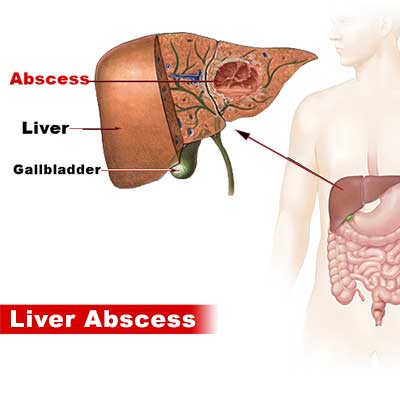It appears there may be a slight spelling error in your request. Did you mean to ask for information about "Liver Abscess"? If so, I can provide you with some general information:
A liver abscess is a collection of pus in the liver that results from an infection. It can be a serious medical condition and requires prompt medical attention. There are two main types of liver abscesses: pyogenic (caused by bacteria) and amoebic (caused by the parasite Entamoeba histolytica).

Causes:
1.Pyogenic Liver Abscess:
- Bacterial infections are the most common cause, often originating from infections in other parts of the body that spread to the liver.
- Common bacteria involved include Escherichia coli (E. coli), Klebsiella, and Streptococcus.
2.Amoebic Liver Abscess:
- Caused by the parasite Entamoeba histolytica, which is usually transmitted through contaminated food or water.
3.Symptoms:
- Fever
- Abdominal pain, especially in the upper right side
- Jaundice (yellowing of the skin and eyes)
- Nausea and vomiting
- Fatigue
- Unexplained weight loss
Diagnosis:
- Blood tests to check for infection and liver function.
- Imaging studies such as ultrasound, CT scan, or MRI to visualize the abscess.
- Aspiration of the abscess, where a sample of the pus is withdrawn for laboratory analysis.
Treatment:
- Antibiotics are the primary treatment for pyogenic liver abscess.
- Amoebic liver abscess is treated with specific anti-parasitic medications.
- In some cases, drainage of the abscess may be necessary, either through needle aspiration or, in more severe cases, through surgical intervention.
Prevention:
- Practicing good hygiene, especially when it comes to food and water consumption, can help prevent amoebic liver abscess.
- Timely and appropriate treatment of infections elsewhere in the body can prevent the spread of bacteria to the liver.
It's important to note that liver abscesses are a serious medical condition, and individuals experiencing symptoms should seek immediate medical attention for proper diagnosis and treatment. This information is provided for general understanding and should not replace professional medical advice.
